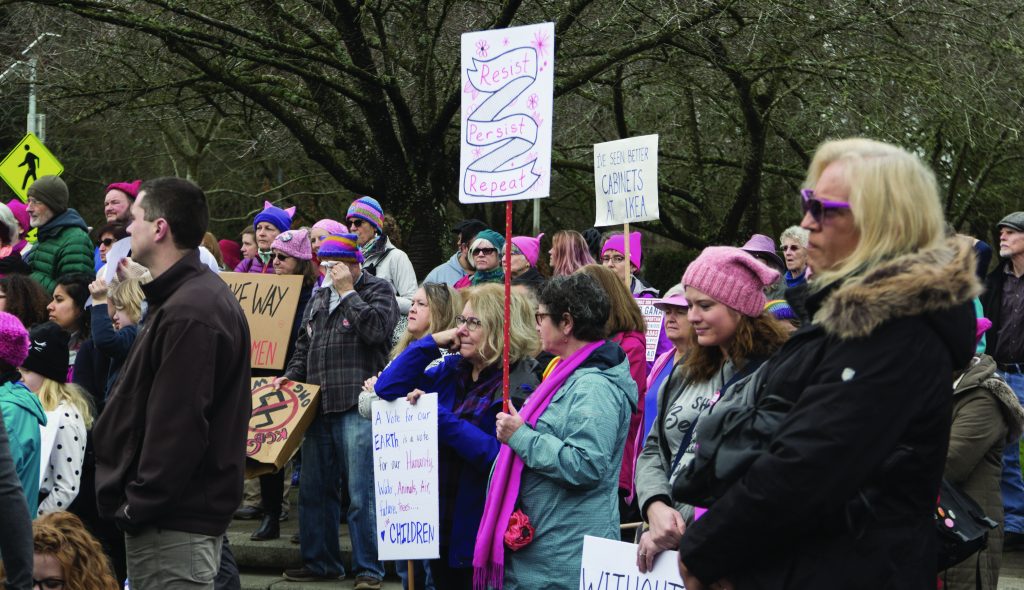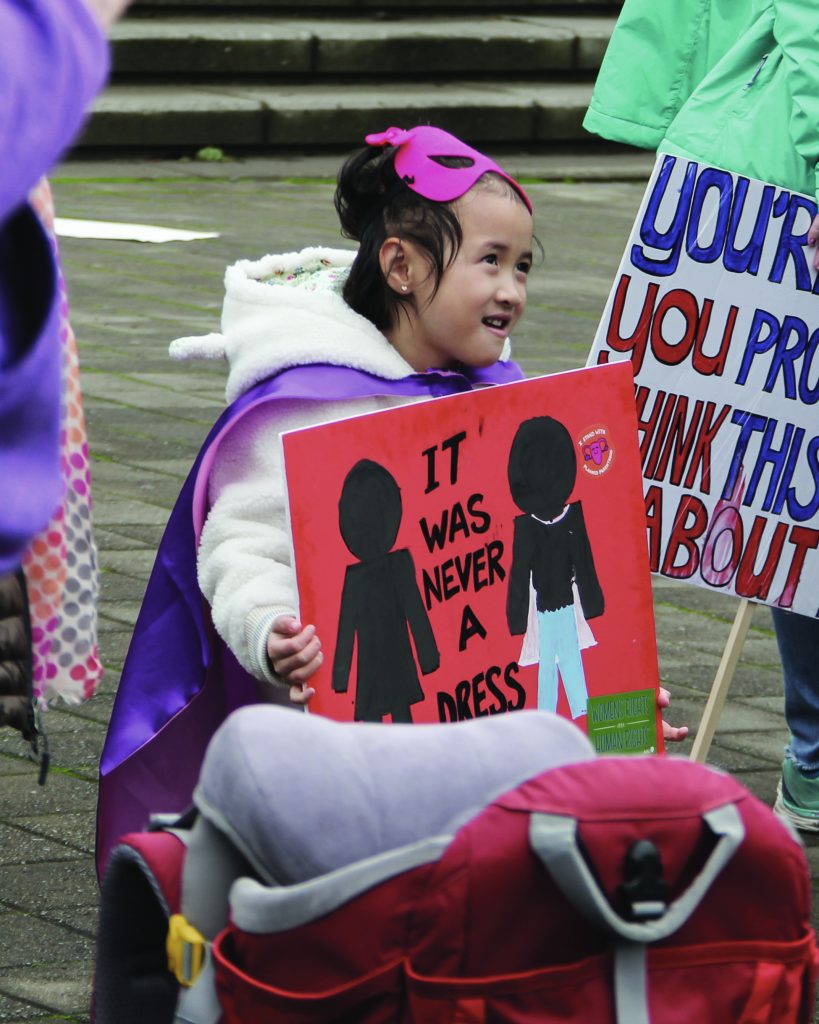
Bailey Thompson | News Editor
With painted cheeks, decorated signs and their own reasons for marching, a substantial crowd of different gender-identities gathered together on the morning of Jan. 19 to support the diversity and strength of womanhood.
With the first march having only taken place two years ago, the Women’s Wave is back for its third year to “harness the political power of diverse women and their communities to create transformative social change,” according to the mission statement.
For this particular event, a number of sponsoring organizations and vendors set up camp on the capitol mall while people socialized and waited for the six women who were scheduled to speak before the march.
The first speaker, Danielle Meyer, is an openly transgender woman who serves as the chair of the Salem Human Rights Commission. She is an activist, a public speaker and a community volunteer. After sharing her story about struggling to come to a place of confidence in who she is, Meyer had a message for those present.
“Find a way to physically participate in the community,” Meyers said. “It’s important that we work for the team of humanity, not just for the team of women or certain religions or political beliefs. We do our work to unconditionally help everyone.”
After Meyers, Sarah Bennett — a wife and mother who works both as a caretaker and in the Oregon National Guard — emphasized the worth of traditionally undervalued jobs like caretaking to the crowd and encouraged them not to see such work as insignificant or unimportant.
Following Bennett, Shelaswua Bushnell Crier, a teacher, community activist and lawyer spoke about the importance in seeking unity in the midst of chaos and hatred.
“Let’s make an effort to talk to one another. Let’s make an effort to talk to people who don’t necessarily agree with us on everything,” said Crier. “Everybody has a story. That person who voted for Trump has a story. There’s a reason.”

Crier then stated that the only way the United States will be able to progress is if its citizens choose to embrace each other and work together, despite any differences they may have.
During the event, Crier’s two daughters also shared their gifts in singing “Quiet” by MILCK and “Lean on Me” by Bill Withers before the crowd.
Next up, Jennifer Hofmann, author of the political blog “Americans for Conscious Checklist,” shared how recent events have spurred her to action, and how she hopes that it will do the same to others.
“Instead of fighting the current administration, let us support our neighbors impacted by its intolerant ideas,” said Hofmann. “I challenge you to take your big heart to any community already working for justice and commit to supporting their work.”
The following speaker, Professor Wendi Warren Binford, brought an important, but a somber message. She has been one of the few private citizens allowed to go and observe the children held at our country’s border, which has left her with a number of horrifying stories.
“People ask me, ‘Is it really as bad as the media reports?’ and it is. In fact, I would say that it’s much worse than you have heard in the media,” said Warren Binford. “Indeed, today you can be assured that there are children in cages down on our country’s border.”
Despite the horrendous scenes she witnessed, Warren Binford has a vision for the future.
“We need to make sure that our children know another America — the America you represent, the America I’m fighting for, the America we need to take back,” said Warren Binford.
The final speaker of the day was Maria Reyes Patino, an immigrant from Oaxaca, Mexico who is a DACA recipient and works with the Oregon DACA coalition to help educate immigrants about what is happening in our system and to help support them. She is also an addiction treatment specialist and a college student.
“I am being silenced because you see my skin before you see my heart,” said Reyes Patino. “I am proud of my culture — where I come from — because I find beauty in my brain and in my strength.”
She also issued a challenge to those in attendance: passivity is not enough.
“It’s not enough to be not racist and not homophobic — we have to be anti-racist and anti-homophobic,” said Reyes Patino. “And the best we can help those around us is to educate ourselves.”
To round out the event, marchers took to the streets: chanting, holding hands and embracing hope for a brighter future for women everywhere.
Contact the author at howlnews@wou.edu
Photo courtesy of Bailey Thompson

